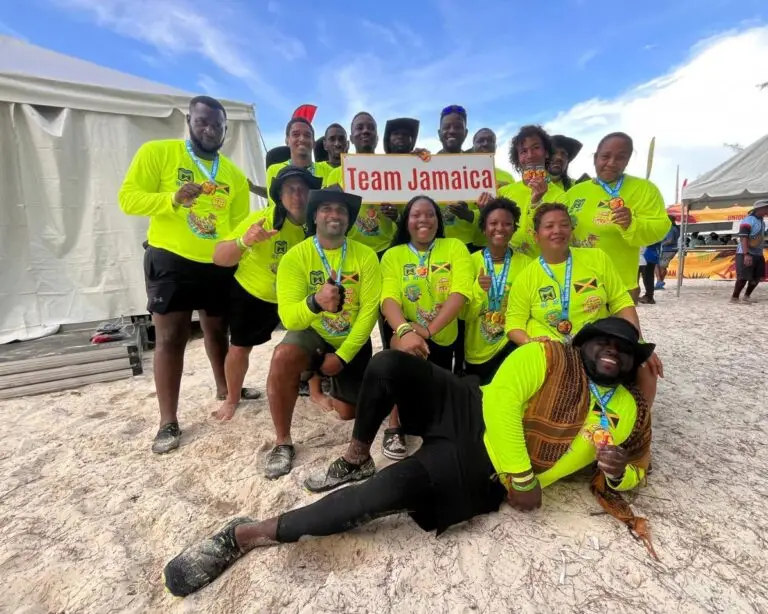Jamaica’s national dragon boat squad turned heads in Nassau this weekend, delivering an audacious performance that defied inexperience and disrupted expectations across the Caribbean’s fastest-growing water sport. With only two months of preparation, the team punched above its weight, seizing a bronze medal in the fiercely competitive Mixed Major 200m Final — a historic first for the island.
Precision Over Power: Jamaica’s Strategic Stroke
Clocking 1:04.79 in the first round and following up with a commanding 1:11.3 victory in the second, the Jamaican mixed crew not only set national benchmarks but also stunned veteran squads from North America. Their combined times earned them a coveted place in the Major Division A Final — traditionally dominated by seasoned international outfits.
Team captain Jason McKay made a tactical call to forgo the Minor Open final to preserve energy for the Major clash — a high-stakes decision that reflected both the physical toll of near back-to-back races and the logistical constraint of operating with a lean 17-member roster. Despite this, the squad’s focus and grit were enough to secure a podium finish against vastly more experienced rivals.
Open Squad Breaks Records, Challenges Elite
Jamaica’s open team further amplified the nation’s presence by breaking the national record with a blistering 1:03.95 — the fastest second-round time out of all 27 competitors. That time outpaced even the eventual champions, Buoys and Gulls, in their qualifying heat. Though Jamaica would eventually place behind the Canadian titans and fellow contenders Nauti Crew, the signal was clear: the Caribbean now has a new threat in dragon boating.
Rising From Scratch, Racing With Giants
McKay praised the team’s trajectory from novices to medalists, highlighting that Jamaica only formally entered the sport following its inaugural domestic festival just months prior. “To go from zero to bronze — while defeating international champions along the way — is beyond what we imagined,” he said. With just one experienced member on the roster, the rest of the squad paddled on heart, coordination, and sheer national pride.
Had the team fielded a deeper bench, McKay believes they would’ve reached all three Division A finals. “But we’ll be ready next year — and this time they’ll be racing us on our waters,” he added, referencing Jamaica’s upcoming role as host for the 2026 tournament.
The Ripple Effect
Beyond the medals, the significance of Jamaica’s breakout run lies in its signal to the sporting world: the island’s competitive spirit is no longer confined to track and field. A blueprint is forming — built on rapid adaptation, strategic allocation of limited resources, and the ability to challenge dominant global players even without historical footing.
As the team looks to expand its roster and training capacity, the question is no longer whether Jamaica belongs in the sport — it’s how soon they’ll rise to the top. With home advantage awaiting in 2026, and a now-proven ability to build fast and strike harder, the next chapter may well be gold.






